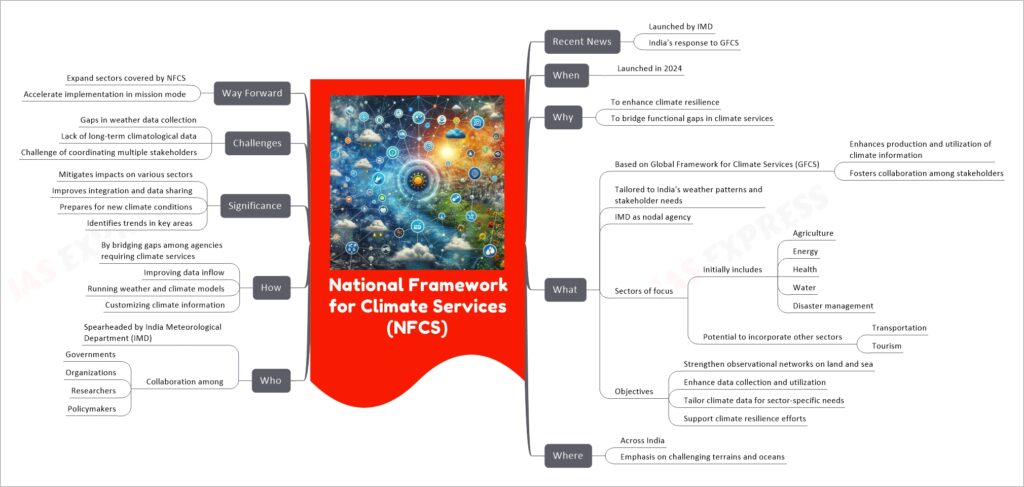National Framework for Climate Services (NFCS)

The National Framework for Climate Services (NFCS) in India, launched by the India Meteorological Department (IMD), is an initiative to enhance climate resilience and bridge functional gaps in climate services. It aligns with the Global Framework for Climate Services (GFCS) and is tailored to India’s specific weather patterns and stakeholder needs. The NFCS focuses initially on sectors like agriculture, energy, health, water, and disaster management, with the potential to expand to others such as transportation and tourism. Its objectives include strengthening observational networks, enhancing data collection and utilization, and customizing climate data for sector-specific needs. The NFCS faces challenges such as gaps in weather data collection and the coordination of multiple stakeholders but aims to mitigate impacts on various sectors and improve climate resilience. The way forward includes expanding the sectors covered and accelerating implementation in a mission-mode approach.

